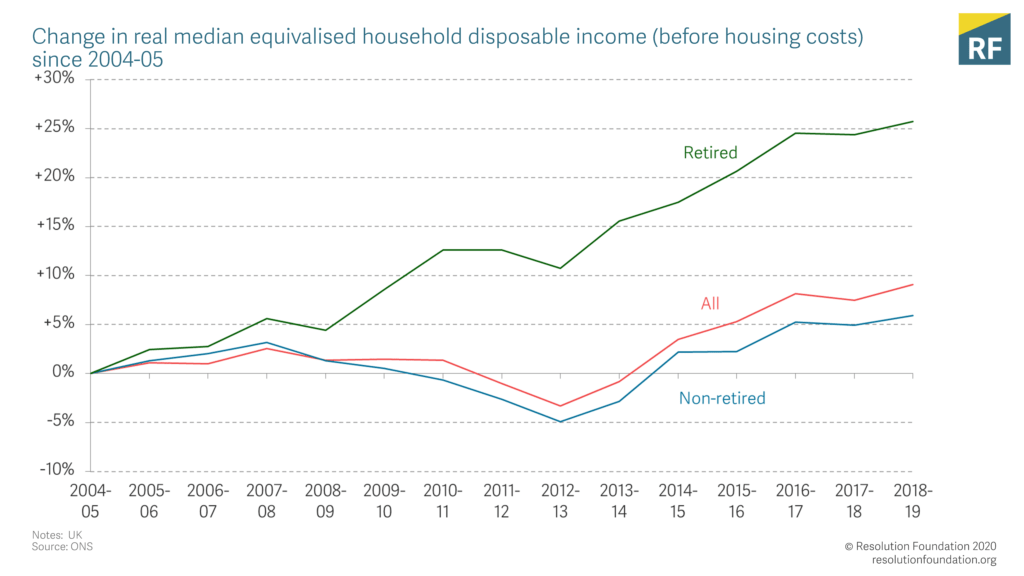Unlike with employment or GDP, detailed data on disposable household incomes comes with a long lag. So today [5 March 2020] the ONS released its main household income results for 2018-19. There will be more data to come in future (including poverty numbers later this month), but what we’ve learned today is not reassuring about post-referendum living standards.
Confirmation of a weak ‘Article 50’ period, on top of the financial crisis
One striking finding in today’s data is that real mean disposable income (equivalised to account for family sizes, but before housing costs) was no higher in 2018-19 than in 2007-08. The typical (median) household income has performed only slightly better: now standing at around 6 per cent higher than in 2007-08, at around £30,000. As with the wage squeeze – where average pay has only just returned to its pre-crisis peak – this is a result both of the last recession and the period of high inflation that followed the Brexit vote: a double whammy for household finances.
This table shows what I have known for a while: I am better off financially as a retired person.

Continue reading and view the above table, and others, at a size at which you can actually see the figures!
Labels:
inflation, Brexit_effect, household_income, 2018-19, Resolution_Foundation,
No comments:
Post a Comment